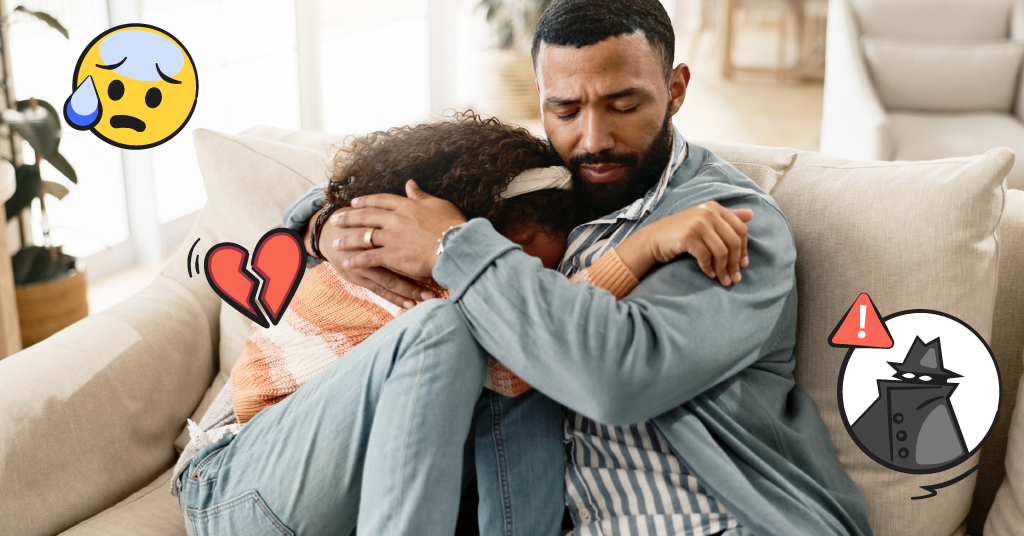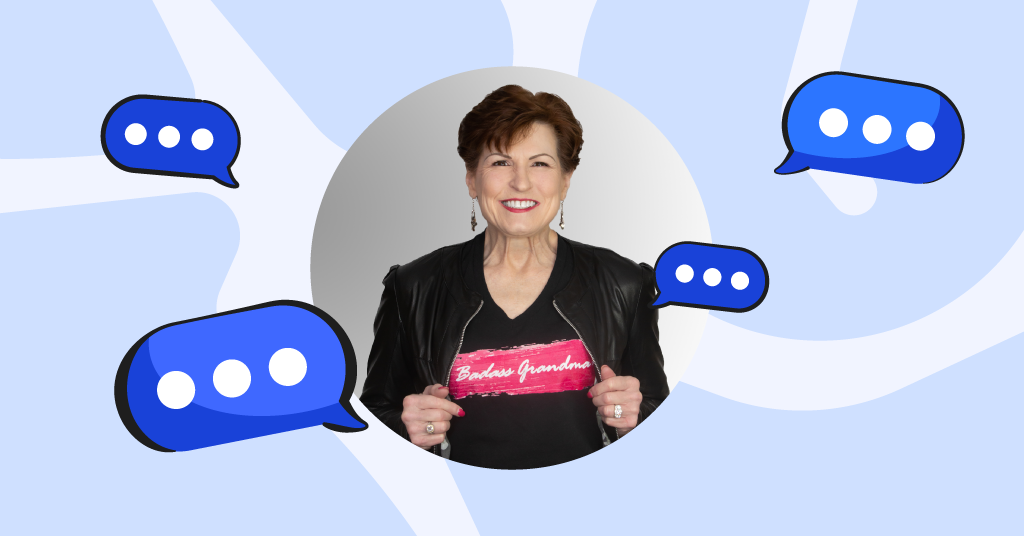
**Please note: This blog post was updated on April 14, 2025.**
As parents probably know, Facebook is the most widely used social media platform for adults today. More than 2 billion people use it to stay in touch, and nearly half of those people use Messenger, its text chat and video app. While teens may opt for the Wild Wests of TikTok, Instagram, and Snapchat, younger kids and tweens are now using the Facebook Messenger Kids app in record numbers (and not just for the fun illustrated stickers and interactive filters).
Facebook launched Messenger Kids, a video chat and messaging app designed specifically for kids to communicate with family and close friends, in 2017. Much of the app’s appeal lies in the fact that parents not only have full oversight into their children’s activities, but they can also rely on the contact lists of their existing Facebook networks. Kids get a level of autonomy while parents get peace of mind that they can see (mostly) everything their child is doing on the app. Meta also recently announced teen accounts for Facebook and Messenger, which will operate within the main apps, separate from Messenger Kids.
If your child is already using Messenger Kids — or if you’re thinking about using it to help them connect with friends and family — we’ll break down everything you need to know in this blog post.
How Messenger Kids is Different from Other Social Media
Before we dive into the mechanics of Messenger Kids, it may be helpful to understand why many parents choose to use it. Technically, kids under 13 cannot use social media platforms (including Facebook) because of COPPA, a federal law that protects children’s online data. Messenger Kids sidesteps this requirement because parents actually sign up on their child’s behalf and manage their account themselves.
This set-up — where kids use the app in a controlled environment and their parents manage every aspect of it — is like training wheels for a child’s first social media experience. With Messenger Kids, children don’t have a public profile that every other Facebook user can see. Parents can choose to make their kid’s name and profile photo visible to friends of their kid’s contacts (and their parents), the kids of their own Facebook friends, and the kids of people they invite to download the app. No other social media platform gives parents this level of control.
How Messenger Kids Works
Parents begin by downloading the app onto their child’s device. They set up and manage their child's Messenger Kids account through their own Facebook account. Parents can then:
- Control their child's contact list
- Use their own Messenger account to message and video chat with a child who's using Messenger Kids
- Approve or deny new requested connections from their kids
- Set in-app time limits
- Remotely log their kid out of the app
The app relies heavily on parental involvement, both for managing your own child’s account and reaching out to other parents to approve child connections. The hallmark of Messenger Kids is visibility on all sides so that there are no surprises or hidden activities. Parents can also download their child’s conversations at any time.
Family members who are older especially like the functionality of Messenger Kids because they don't have to download any new apps in order to keep in touch. If a grandparent already has Facebook, they can get started chatting with their grandchild right away without having to learn how to navigate a new social media platform.
What Protections Are There On Facebook Messenger Kids?
Apart from a 2019 technical flaw that temporarily allowed strangers into some group chats, Messenger Kids is a remarkably secure app for kids wishing to chat and video call with friends and family members. A parent can see nearly everything about their child’s Messenger Kids experience through their own Facebook dashboard, including:
- Who their child chats with
- How much time they spend in the app, including message counts and video calls
- Who they’ve blocked/unblocked
- Every image they send/receive
And unlike most chat apps, nothing can be deleted on Facebook Messenger, which means parents can scroll back and read every message they want. Kids also don’t have the ability to send links or YouTube videos within the app, which means their exposure to potentially concerning content is limited to in-app communications.
Potential Dangers in Messenger Kids
Because of all the safeguards that are in place with Messenger Kids, the primary dangers kids face are interactions with existing friends and acquaintances, rather than strangers. A common adolescent risk is cyberbullying, which can take place both in text chats and images/videos.
One blind spot in Messenger Kids, though, is the video functionality. While parents can see who their child called and when they called them, no record is left of the interaction itself. This means that if your child experienced cyberbullying or other potential issues like inappropriate or offensive content over live video chats, and there would be no evidence.
Parents may be also concerned that introducing their children to a Facebook product at a young age may get them “hooked” on the platform at an early age. This is a risk for any social media platform, however — concerned parents wishing to combat this can limit time on the Facebook Messanger Kids app and set strong boundaries.
All in all, the Facebook Messenger Kids app is a secure way for parents to let their kids keep in touch with friends and family members in a pretty safe environment with lots of oversight. While security breaches can occur in any app — as have on this very platform in 2019 — consistent supervision and check-ins with your child can go a long way in giving you peace of mind.
Read more
Bark helps families manage and protect their children’s digital lives.






